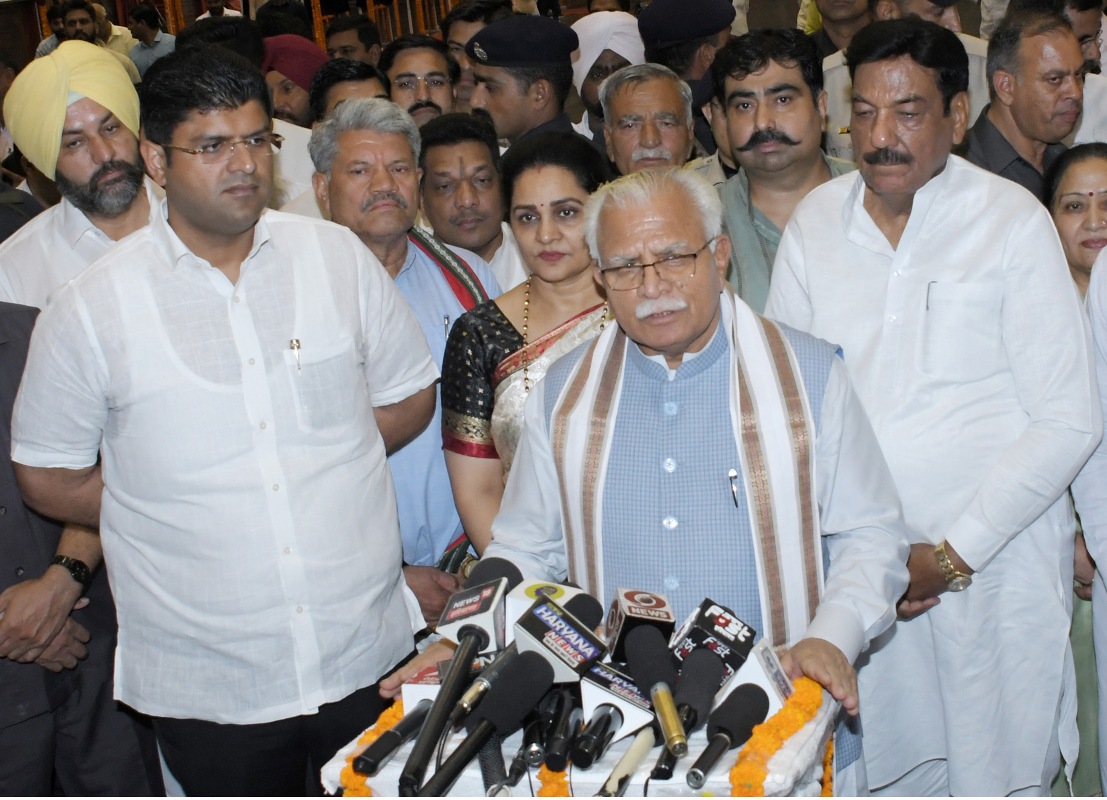Guide farmers to adopt crop diversification to save Punjab: CM
Asserts that the onus to guide farmers in adopting sustainable agriculture practices lies on scientists.
CM Manohar Lal Khattar said direct seeding of rice (DSR) technology is another first-of-its-kind incentive-driven push which has been introduced as a pilot project by the state government recently to promote water conservation.

Haryana Chief Minister Manohar Lal Khattar, on Wednesday, said the state government is encouraging farmers to adopt crop diversification and eco-friendly farming techniques. He said his government is giving a big boost to conserving water in the state by launching an effective technique for paddy growers.
The chief minister said direct seeding of rice (DSR) technology is another first-of-its-kind incentive-driven push that has been introduced as a pilot project by the state government recently to promote water conservation.
Khattar said a cash incentive of ₹4,000 per acre is being offered to the farmers under the scheme. Farmers of 12 paddy growing districts of Haryana under the watch of agriculture and farmers’ welfare department experts will be able to grow paddy through this technique during the current paddy cultivation season.
Growing rice by sowing the seed is already prevalent in a few rice-producing pockets of Haryana. The government is promoting this alternative way of cultivating rice to ensure that the water conservation movement gets a boost in the state and farmers get benefit through this, he added.
“It’s another new and unique initiative in the state to give incentive and support to thousands of farmers who earn their bread and butter through paddy cultivation. This will not only provide them a cost-effective method but also fetch them the desired exposure and education about the new techniques to strengthen their practices,” Khattar said.
“DSR technique with financial help is another big decision of the Haryana Government to inspire farmers to opt for crop diversification, reduce area under paddy cultivation and go for eco-friendly farming techniques,” he added.
This incentive-based scheme will be implemented in 12 districts including Ambala, Yamunanagar, Karnal, Kurukshetra, Kaithal, Panipat, Jind, Sonipat, Fatehabad, Sirsa, Rohtak, and Hisar.
DSR-cultivated paddy plots will spread across 6,000 acre each in Yamunanagr, Panipat, and Sonipat 7,000 acres in Ambala, 8,000 acres each in Sirsa, Hisar, Rohtak, 9,000 in Fatehabad, 10,000 acres each in Karnal and Kurukshtra, and 11, 000 acre each in Kaithal and Jind.
According to experts, basmati rice can be grown as DSR under non-puddle conditions and it can be done in almost all types of soils suitable for rice growing.
To get the benefit of this scheme, farmers have to first register themselves on ‘Meri Fasal Mera Byora’ (MFMB) portal by 30 June. After that the physical verification will be done by a committee by 25 July and uploaded on MFMB, immediately. The benefits of the DSR scheme will be provided through DBT to DSR verified farmers.
Advertisement